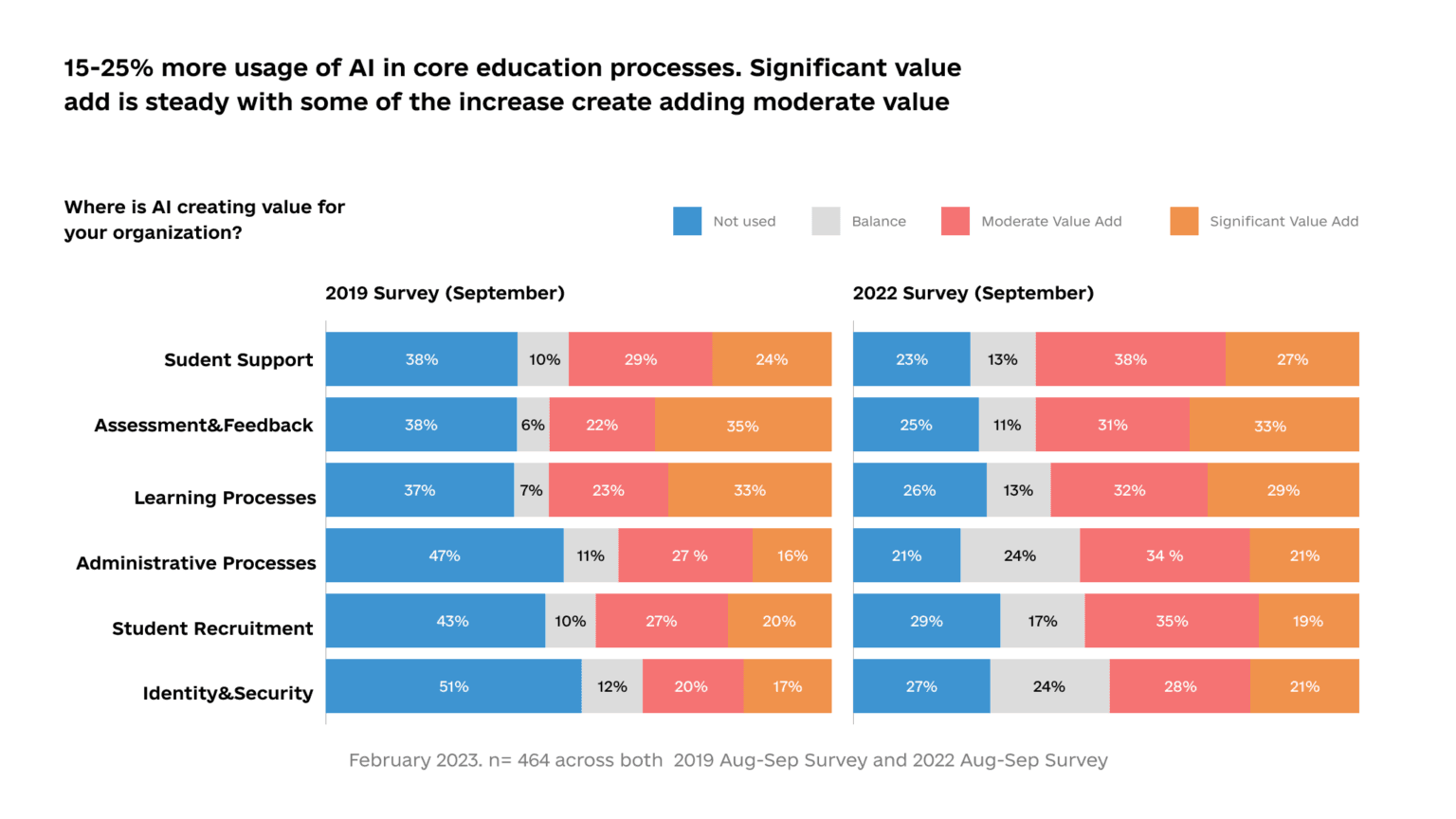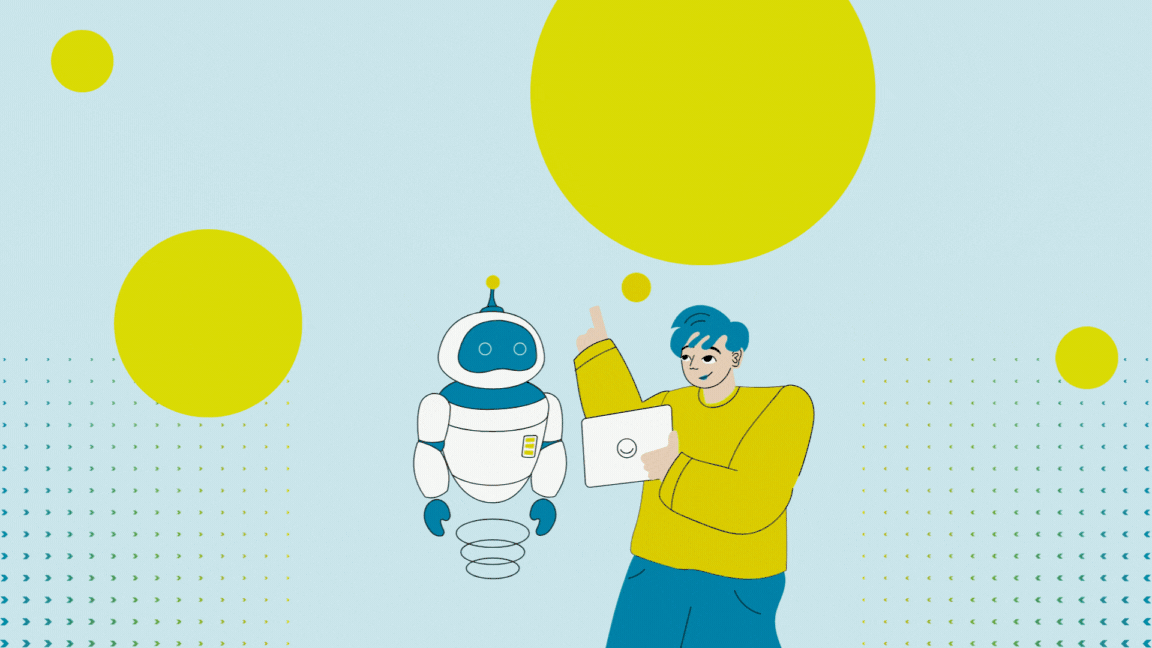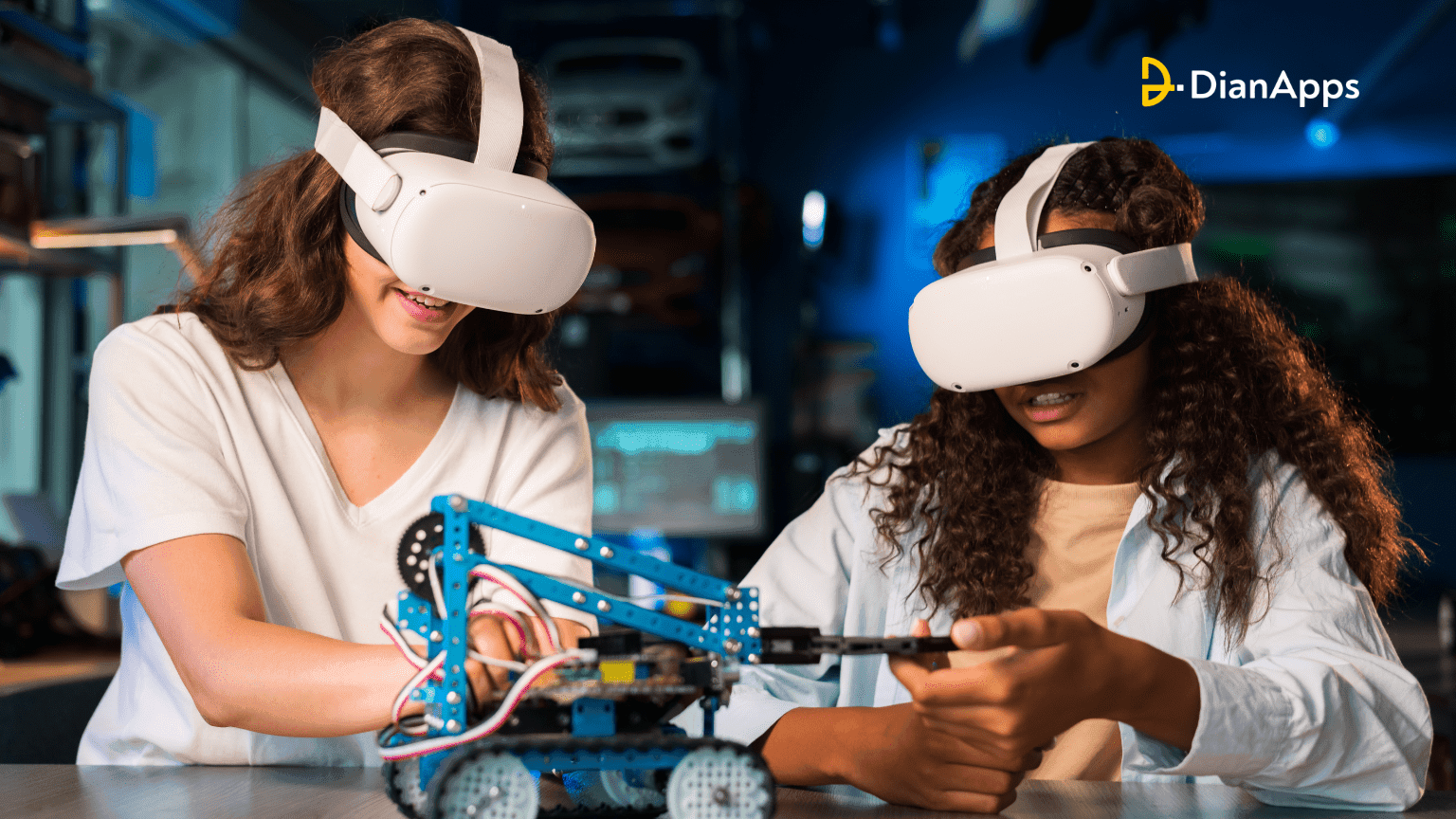Just like Travel, SaaS, and eCommerce Artificial intelligence in education is prevailing throughout the world. From adhering to personalized learning experiences to connecting students with immersive virtual classrooms, the integration of Artificial Intelligence in the education sector is giving beyond the cloud modern infrastructure to shape the future of learners.
During research conducted by UNESCO, it was found that the involvement of AI in education has filled the knowledge gap, removed dependency, and empowered a strong urge to freely explore a wide range of courses and methodologies seamlessly. Thereby, encouraging EdTech companies to merge in the vertical of spreading new aspects of academic attainment.

With significant inroads in the education system, AI experts predict that this combination will make far-reaching changes in today’s teaching methods but will not completely replace the traditional learning systems.
Also Read: Is AI replacing jobs of Professionals?
If you have an EdTech business that needs the adoption of AI technology, now is the time to talk about applications and potentials of AI app development in the education sector.
This blog is a walkthrough of the importance of Artificial Intelligence is revolutionizing education, with AI Application Development Services driving personalized learning experiences and optimizing educational outcomes.
Let’s peek!
Artificial Intelligence in Education: Market Statistics Businesses Must Know

- The Global Market Estimates that the education market will be valued at USD 20.54 billion by the year 2027.
- According to 43% of USA college students, learning has become much simpler with the use of AI tools such as ChatGPT.
- ChatGPT is also been used by half of the teachers to plan lessons more conveniently.

- As per livemint.com, 60% of EdTech companies are using AI tools for tutoring, lesson planning, and student engagement activities. While 9.49% still find AI a concerning factor and state that it will diminish human interactions in education and over-reliance on technology.
- By the end of 2024, it is anticipated that half of the learning management systems will make Artificial intelligence in education a priority.
What are the Benefits of Using Artificial Intelligence in the Education Sector?

1. Personalized Learning System
The adaptation of learning a concept works differently for every student. While some quickly fetch the shared knowledge, others may find it difficult to reciprocate whatever has been taught in the same environment. Artificial intelligence in education unfolds fair and justified personalized learning solutions for each student individually.

With the help of supporting technologies such as Machine Learning in the field of study, where it can carefully examine how every student processes various learning sessions and the level of understanding to suggest the best resolution for each student.
Here are some key areas in which AI achieves personalization in the education sector:
- Adaptive learning programs
- Intelligent tutoring systems
- Personalization content recommendation
- Natural language processing
- Gamification and stimulation
- Early intervention
- Emotional and social learning support
2. AI Uses Task Automation
Managing students and looking into each of them individually can be challenging for educators. Artificial intelligence in education bridges this gap by altering the teaching process while helping them check the assignments, remark on the tests, prepare research papers, maintain each student’s report, make educational notes and presentations, and other administrative tasks.

To fruitfully coordinate with the various educational systems, AI facilitates task automation in education that helps educators and administrators to pivot on the qualitative aspects of education such as:
- Personalized instruction
- Mentorship
- Student engagement
3. Ideal Content Creation Through AI & ML
In the era where teachers face the hardship of drawing the attention of their students, AI suggests educators create innovative and appealing content that excites and entices learners effortlessly.

You can make education fun when it is combined with AI and ML innovation that produces:
- Automated quiz and assessment generation
- Interactive eLearning modules
- Digital textbooks with adaptive content
- Educational videos and animations
- Automatic language translation
- Virtual and Augmented Reality experiences
- Stimulations for practical learning
4. AI Provides Complete Access to Information
Did you know? Approximately 60% of EdTech companies rely on AI/ML-based education app development services that combine modern features and tools. As AI has prevailed in the opportunity to empower your knowledge spectrum, educators and EdTech organizations have the opportunity to explore AI in education features such as multilingual support through the presentation translator that majorly helps hearing-impaired students overcome learning difficulties in real-time virtual lecture environments.
5. Secured & Decentralized Learning Systems
With the vigorous expansion of education into the innovation realm, does it imply that the learning system is secure and data protected? Of course not!
With technologies invading the industry issues like data privacy, data accessibility, and outdated certification processes are being affected. AI again outshined in this held-back by introducing AI-based decentralized solutions that can quickly identify the issues and provide quick technological solutions to the education industry.

The best example of AI providing secure learning systems is Blockchain-based credentialing, education providers can seamlessly:
- Guard the storage of educational records
- Decentralize verification
- Enhance data security
- Smart contracts for automated process
- Reduced credential fraud
- Efficient transcript exchange
Top Examples of Artificial Intelligence in the Education Sector
AI applications in education are changing the way students learn by providing an adaptable learning experience based on their particular talents and needs. Here’s a more detailed description of how a few major worldwide firms are combining AI with education to produce intuitive and revolutionary AI-powered EdTech applications:
Google Classroom is a popular program that uses AI to ease several aspects of education. It allows teachers to create and assign projects, provide feedback, and efficiently manage classroom interactions. Google Classroom AI algorithms can automate grading, offer personalized suggestions for learning materials, and analyze student data to provide insights into performance and progress.
Google Translate and Google Scholar are important tools that improve students’ and instructors’ learning and research experiences. Language boundaries are no longer an issue thanks to Google Translate, which offers rapid text, website, and even spoken language translations.
Meanwhile, Google Scholar uses artificial intelligence algorithms to evaluate and index scholarly articles, research papers, and academic resources, making it simpler for students, researchers, and educators to locate relevant and authoritative materials for their studies.
Duolingo
Duolingo, a popular language learning program, makes use of artificial intelligence to create adaptive language lessons. AI systems track students’ progress, identify areas for improvement, and change course content as needed.
The software provides tailored lessons, vocabulary drills, and interactive assessments to help language learners improve their skills. AI also helps with speech recognition, pronunciation feedback, and the development of intriguing content, all of which aid in effective language acquisition.
Coursera
Coursera uses AI to transform online education. Students can benefit from individualized course recommendations, adaptive learning paths, and automated exams, which provide specialized ideas and feedback.
AI algorithms assess user preferences and performance data to recommend appropriate courses, dynamically change course content based on learners’ progress, and deliver real-time grading and feedback. These AI-driven features improve the learning experience, eventually increasing participation and outcomes in online education.
The Future of AI in the Education Sector
Artificial intelligence’s influence on schooling is evident. Many organizations are increasingly utilizing artificial intelligence to improve students’ learning experiences. Some companies utilize AI chatbots in education to give students 24-hour assistance, while others use AI algorithms to detect failing pupils and provide focused solutions. The options are limitless.
Consider incorporating generative AI consultancy into your education business plan. It’s a wise investment that will yield a high ROI in the long term.

Being a leading provider of mobile app development services, DianApps has a thorough awareness of the state of education today. Our subject expertise and our experience as an artificial intelligence services provider allow us to develop powerful apps that improve teacher-student cooperation, customize learning, and offer insightful insights.
Thus, why do you delay? Speak with our professionals to take advantage of AI’s educational advantages right now.










Leave a Comment
Your email address will not be published. Required fields are marked *